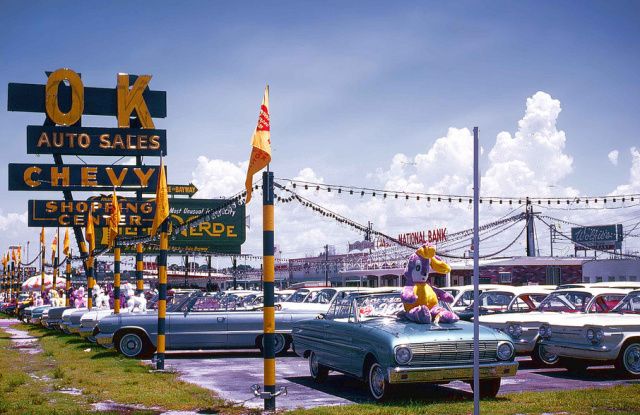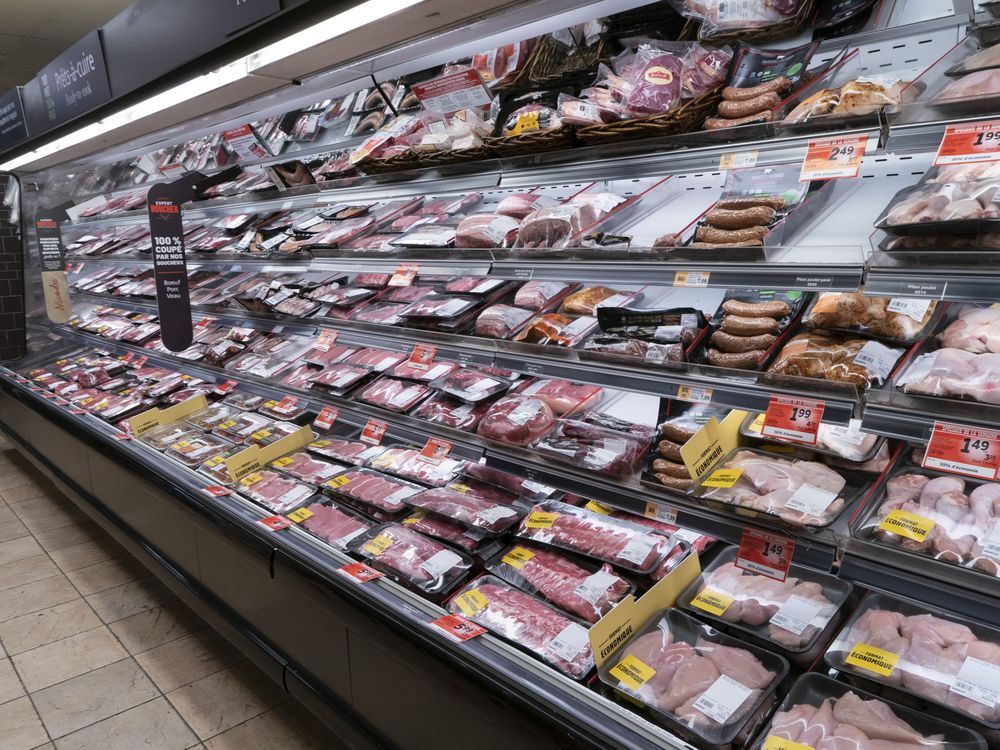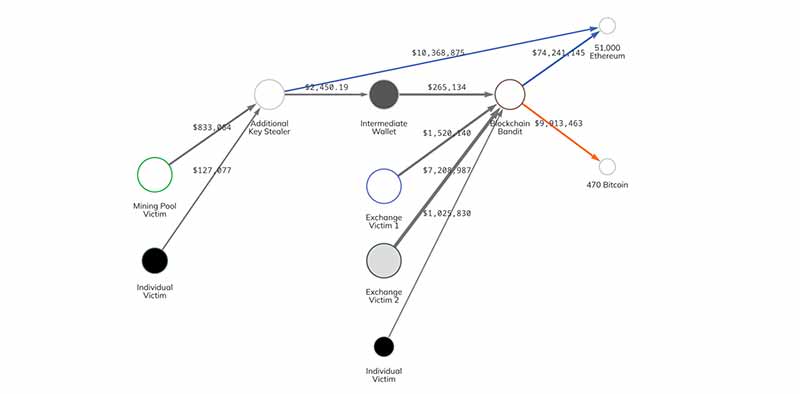Dealerships Double Down: Renewed Opposition To Mandatory EV Sales

Table of Contents
Financial Concerns and Infrastructure Limitations
Dealerships argue that transitioning to EV sales requires substantial upfront investments, creating significant financial strain. This impacts their profitability and long-term viability in a rapidly changing market.
High Upfront Investment Costs
The transition to selling EVs isn't simply a matter of adding a few new models to the showroom floor. It involves significant capital expenditure:
- Significant costs associated with installing charging infrastructure: Dealerships need to invest in robust, reliable charging stations capable of handling various EV models and charging speeds. This includes the cost of installation, maintenance, and potential upgrades as technology advances.
- Need for specialized EV technician training: Maintaining and repairing EVs requires specialized skills and training. Dealerships must invest in training programs for their existing technicians and potentially hire new, specialized staff. This adds to the overall financial burden.
- Potential for lower profit margins on EVs compared to gasoline vehicles: Currently, the profit margins on EVs can be lower than those on gasoline-powered vehicles. This is due to a variety of factors, including higher manufacturing costs and increased competition in the EV market. This lower profitability directly impacts the financial viability of adopting mandatory EV sales quotas.
Lack of Consumer Demand in Certain Markets
Dealerships also contend that consumer readiness for EVs varies significantly across different geographical regions. In many areas, the infrastructure and consumer support simply aren't there yet to support a mandated shift to EVs.
- Insufficient charging infrastructure in many areas hampers EV adoption: The lack of a widespread and reliable public charging network remains a significant barrier to EV adoption for many consumers. Range anxiety and charging time are legitimate concerns that need addressing before mandatory EV sales become widespread.
- Consumer concerns about range anxiety and charging times remain a barrier: Many potential EV buyers are hesitant due to concerns about limited driving range and the time it takes to recharge compared to filling a gas tank. Addressing these consumer concerns is vital for boosting EV adoption organically.
- Price disparity between EVs and gasoline vehicles still a factor: The higher initial cost of EVs compared to comparable gasoline vehicles remains a significant deterrent for many consumers. Until prices become more competitive, mandating higher EV sales could negatively impact dealerships' bottom lines.
Logistical Challenges and Supply Chain Issues
The transition to EVs presents significant logistical challenges for dealerships, particularly in managing inventory and adapting their workforce.
Inventory Management Complexities
Balancing EV and gasoline vehicle inventory presents a logistical nightmare for dealerships. Accurate demand forecasting is difficult in this rapidly evolving market.
- Difficulties in predicting EV demand accurately: Forecasting the demand for specific EV models and configurations is challenging due to the novelty of the technology and the rapid pace of innovation.
- Potential for excess inventory of one type of vehicle leading to losses: Misjudging demand can lead to overstocking of either EVs or gasoline vehicles, resulting in financial losses due to storage costs, depreciation, and potential markdowns.
- Challenges in managing different supply chains for EV components: The supply chains for EV components are often different and more complex than those for gasoline vehicles, making inventory management more challenging and increasing the risk of disruptions.
Training and Workforce Adaptation
Successfully transitioning to an EV-focused business model requires significant investment in employee training and workforce adaptation.
- Need for specialized EV knowledge among sales and service personnel: Sales staff needs to be knowledgeable about EV technology, charging options, and government incentives. Service technicians require specialized training to diagnose and repair EV components.
- Costs associated with training and certification programs: Investing in comprehensive training programs for sales and service staff involves significant costs, adding further financial pressure on dealerships.
- Potential labor shortages due to lack of skilled EV technicians: There's a potential shortage of skilled EV technicians, making it challenging for dealerships to find and retain qualified personnel.
Government Policy Concerns and Regulatory Uncertainty
Dealerships also express concern over inconsistent government policies and regulations surrounding EV adoption and the potential for unfair competition.
Unclear Government Regulations and Support
The lack of clear and consistent government regulations creates uncertainty and challenges for dealerships.
- Varying regulations across different states and countries: Inconsistent regulations across different jurisdictions make it difficult for dealerships to develop a cohesive national or international strategy for EV sales.
- Uncertainty regarding future government incentives and subsidies: The uncertainty around future government incentives and subsidies makes long-term planning challenging and increases the risk of investment losses.
- Concerns about the long-term viability of EV mandates: Dealerships worry about the long-term sustainability of mandatory EV sales quotas if consumer demand doesn't keep pace with the government's targets.
Potential for Unfair Competition
Dealerships are concerned about facing unfair competition from direct-to-consumer EV brands that operate outside the traditional dealership model.
- Lack of a level playing field between traditional dealerships and online-only EV sellers: Direct-to-consumer brands often have lower overhead costs and can offer more competitive pricing, creating an uneven playing field for traditional dealerships.
- Concerns about the erosion of traditional dealership business models: Dealerships fear that the rise of direct-to-consumer EV sales could lead to the erosion of their traditional business models and potential job losses.
- Need for fair and equitable regulations to support traditional dealerships: Dealerships advocate for government regulations that create a fair and equitable playing field for all participants in the EV market, including traditional dealerships.
Conclusion
The renewed opposition to mandatory EV sales by dealerships stems from a confluence of financial, logistical, and regulatory concerns. While the transition to electric vehicles is inevitable, a more gradual and supportive approach from governments is crucial to ensuring a smooth transition and avoiding potentially negative consequences for dealerships and consumers. Addressing the concerns regarding infrastructure investment, consumer demand, and regulatory certainty will be key to fostering successful adoption of mandatory EV sales. Ignoring the valid concerns of dealerships could lead to unintended economic repercussions. It is imperative that a balanced approach is found to navigate the shift to electric vehicles, considering both environmental goals and the economic realities facing the automotive industry. A collaborative effort is needed to address the challenges surrounding mandatory EV sales to facilitate a successful transition for all stakeholders. Understanding the complexities surrounding mandatory EV sales is crucial for the future of the automotive industry. Let's work together to find solutions that support both environmental sustainability and economic stability.

Featured Posts
-
 The Passing Of Pope Francis Reflecting On A Compassionate Papacy
Apr 22, 2025
The Passing Of Pope Francis Reflecting On A Compassionate Papacy
Apr 22, 2025 -
 Landmark 500 Million Bread Price Fixing Settlement Canada Awaits May Hearing
Apr 22, 2025
Landmark 500 Million Bread Price Fixing Settlement Canada Awaits May Hearing
Apr 22, 2025 -
 Alterya Acquired By Chainalysis A Strategic Move In Blockchain Technology
Apr 22, 2025
Alterya Acquired By Chainalysis A Strategic Move In Blockchain Technology
Apr 22, 2025 -
 Google Doj Return To Court Battle Over Search Monopoly Heats Up
Apr 22, 2025
Google Doj Return To Court Battle Over Search Monopoly Heats Up
Apr 22, 2025 -
 Harvard And The Trump Administration A 1 Billion Funding Cut And Rising Tensions
Apr 22, 2025
Harvard And The Trump Administration A 1 Billion Funding Cut And Rising Tensions
Apr 22, 2025
